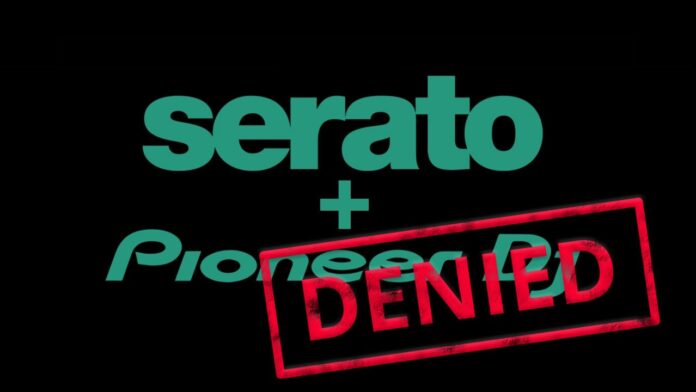We covered the initial news last year about how AlphaTheta (Pioneer DJ’s parent company) proposed a corporate acquisition of Serato Audio Research. Today, there’s been big news that might slow the deal to a halt: New Zealand’s antitrust regulatory agency, the Commerce Commission, has denied clearance for the deal.
Many in the industry declared the initial deal – estimated to be worth ~$59 million US – a done deal. But substantial publicity and pushback by inMusic (Denon / Numark / Rane / and others’ parent company) about the potential monopoly situation that would emerge from the merging of the two companies helped draw that into question.
Here’s the thing about foreign investment in New Zealand: any deal that’s above a certain dollar amount that involves an outside company taking over a New Zealand-based company triggers a review and approval process by the country’s Overseas Investment Office. The actual clearance for the deal seems to have fell on the shoulders of the Commerce Commission (or ComCom for short). Interestingly the decision date was pushed back at least four times – but today they’ve finally released it.
Here’s a few choice excerpts from ComCom’s decision to decline, posted on their website:
Chairman Dr John Small said that the Commission was not satisfied that the merger would not have the effect of substantially lessening competition in the markets for DJ software and DJ hardware.
“The evidence gathered by the Commission indicated that Serato and rekordbox compete closely in the DJ software market. While other DJ software providers would remain in the market, we did not consider these rivals, or the possibility of a new DJ software provider entering the market in the near term, would be sufficient to replace the level of competition that would be lost with the merger. We therefore could not exclude a real chance that the merger would result in a substantial lessening of competition for DJ software, resulting in price rises to consumers and/or a lower quality software offering,” Dr Small said.
“We were also concerned the proposed merger would substantially lessen competition by making it harder for DJ hardware rivals to compete with Pioneer DJ. Serato is an important piece of software for DJ hardware providers to integrate their DJ hardware products with, and the evidence before us indicated that the merger could give ATC the means to either eliminate or worsen DJ hardware rivals’ ability to integrate their products with Serato. We were also concerned the merger would provide ATC with access to its DJ hardware rivals’ commercially sensitive information, including information about unreleased products shared in the integration process, which could provide ATC with a competitive advantage and lessen the incentive on both ATC and its rivals to innovate.”
Indeed, the dual role of both companies as both hardware and software heavyweights in the industry make it pretty challenging to get regulatory permission when there’s a fear of monopolies.
What now for Serato and AlphaTheta?
So, what happens next? Hopefully Serato’s reasoning for entering this deal process wasn’t out of a pressing fiscal need to be acquired. A lot of the times a functionally healthy but financially floundering company will seek acquisition to give their investors and assets a good way out. Editors’ Update July 18th: Serato has reached out to confirm that all is well on their front – here’s a quote from the CEO:
While it’s not the decision we wanted, the Serato business has never been in a better place, and neither has our relationship with AlphaTheta. Through the process, we have not taken our eye away from what we do best, and our pipeline of future innovation is incredibly healthy, including projects with AlphaTheta and other industry partners.
Young Ly, CEO, Serato
There’s a chance that the company could try to move overseas independently to a country that has less business regulation, but that’s a massive expense as well.
Considering Pioneer DJ / Alphatheta’s many years working closely with their large investment capital owners (KKR) with deep pockets, we suspect that it’s probably a bit of a surprise to not get what they’re after. Perhaps instead a very strong and healthy collaboration between the companies could be the route instead. With the actual goal of the acquisition somewhat of a mystery, it’s hard to speculate too much – but maybe there’s an opportunity for AlphaTheta to license some of the software prowess that Serato’s team has and implement it into their hardware offerings.
What do you think, is this deal blockage a good thing for DJs? Comment below and lmk.











